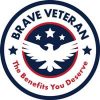Table of Contents
The Servicemen’s Readjustment Act of 1944, also known as the “G.I. Bill,” was groundbreaking legislation that provided a range of benefits for military personnel who served the country faithfully. Many of these benefits included reimbursement for education, health and disability coverage, support for survivors and dependents, and mortgage loans guaranteed by the United States Department of Veterans Affairs (VA). The primary purpose of these loans is to provide home financing to eligible service personnel without the need for a down payment, with competitive rates and allowances for a lower credit history. Not every Veteran or actively serving military personnel qualifies for VA home loans, however, and the types of loans vary from lender to lender. Read on to learn more.
What Are VA Home Loans?
VA home loans for Veterans and active-duty military personnel highlight an important service to the nation’s defenders, especially those suffering financial hardship or unemployment as a result of their service. The VA loan provides Veterans with 103.6 percent financing without private mortgage insurance, a 20% second mortgage, and up to $6,000 in energy-efficient renovations. The VA charges a funding fee ranging from 0 to 3.6% of the loan amount. Some Veterans may receive a subsidy or exemption from this fee. Veterans may borrow up to 103.6% of the purchase price or the property’s fair value, whichever is less. When there is no monthly PMI, a larger portion of the mortgage payment goes towards loan qualification, enabling larger loans with the same payment.
State rules allow Veterans to borrow up to 100% of the property’s reasonable worth when refinancing into a new VA loan. Up until 1992, this service was only available for active-duty personnel during specific military engagement periods. However, amendments to the Veterans Home Loan Program extended eligibility to reservists and members of the National Guard who served for at least six years. It is important to note that the government itself does not issue these loans. Fannie Mae or other qualifying banks issue these loans instead. You can only use VA loans for properties you intend to live in, unlike conventional loans, and there is no down payment required.
Benefits of VA Home Loans for Veterans
VA home loans have many benefits, making them worth considering for anyone who has served in the military and qualifies. Here are a few of these advantages:
- No down payment
- No private mortgage insurance (PMI)
- Flexible and favorable loan terms
- Limited closing costs
- You can use it multiple times in your lifetime
- Relaxed credit score requirements
- Multiple forms of income are accepted
- No loan limits
- Help with foreclosure prevention
Current VA Home Loan Rates: What You Should Know
One of the most attractive features of these loans for Veterans is the competitive VA home loan rates. While it is true that VA home loans are far more forgiving of credit score and income level, these factors do play a role in the loan interest rate and subsequent fees applied to the loan. Regardless, one can expect these rates and fees to still be lower than conventional loans. On average, VA home loans run between 5.75% and 6.75% interest rates, while conventional loans might run between 6.50% and 9% at the moment of writing this. The loan’s amount, duration, intended use, and the applicant’s credit history all play significant roles.
How to Qualify for a Veteran Home Loan
Not every person who served in the military qualifies for a Veteran home loan. The eligibility criteria, necessary documentation, and process for obtaining a VA home loan all vary depending on the applicant, time served, and intent for the loan. This link provides a comprehensive list of requirements specific to each branch and time served. However, there are some general requirements that applicants may meet:
- Served active duty for a minimum of 90 days in a dedicated military engagement.
- Served 181 days during non-military engagements.
- Served 6 years in the National Guard or Selected Reserves, with an honorable discharge or eligible retirement.
- Served less than these days but was discharged due to hardship, convenience of the government, reduction in force, or medical discharge.
The process for applying for a VA loan has a few more steps than applying for a conventional loan, due to eligibility requirements and the verification process. However, with the assistance of a qualified loan offer, the general process is as follows:
- Apply for your certificate of eligibility.
- Review your current credit profile and finances, and draw up a monthly budget to determine what monthly payment you can afford.
- Choose a lender, such as a mortgage company that offers VA loans, a private bank, or a credit union.
- Work with a real estate agent who is familiar with VA loans, including any charges and fees.
- Select a property to buy.
- Go through the typical steps of the home buying process, such as price negotiation, property inspection, drawing up a purchase agreement, and moving forward with the closing.
Veterans United Home Loan: A Top Choice for VA Loans
While many financial institutions offer VA-backed home loans, there are many benefits to working with Veterans United, a leading VA loan lender. Many Veterans prefer Veterans United for a variety of reasons. A Veterans United Home loan often offers some of the lowest rates and fees, as well as financial assistance on closing costs, which is especially helpful for those who cannot afford down payments or closing fees and prefer to have these factors rolled into the overall loan. This particular organization is one of the leading experts in the VA home loan process, and it also has an A+ rating with the Better Business Bureau.
Finding the Best VA Loan Lenders
When looking for the best VA loan lenders to fit your needs, many factors affect the decision, such as customer service, loan terms, and fees. The most convenient option is a local lender with whom you can speak in person or face-to-face. Another option is to visit sites such as Lending Tree, NerdWallet, or Forbes and compare reviews and rates. Examine the rates and fees, customer service reviews of these lenders, and any terms that influence the loan issuance process. For example, some lenders require any borrower to have a credit score of at least 620 to qualify for a loan, even if the applicant meets military eligibility requirements. Others do not require this.
Frequently Asked Questions About VA Home Loans
In this section, let’s address common questions about VA home loans, such as eligibility, interest rates, and the application process. Many people are curious about VA-backed loans, their usage requirements, and the responsibilities of the borrower.
There are several ways to do this. You can start the preapproval process for a loan from Veterans United by calling 800-884-5560 or answering questions online. If you prefer another lender, you can apply with a financial institution that offers VA-backed loans. All lenders require a Certificate of Eligibility to begin the process.
There are several ways to do this. You can start the preapproval process for a loan from Veterans United by calling 800-884-5560 or answering questions online. If you prefer another lender, you can apply with a financial institution that offers VA-backed loans. All lenders require a Certificate of Eligibility to begin the process.
You can apply for a Certificate of Eligibility by submitting a completed VA Form 26-1880, Request For A Certificate of Eligibility For Home Loan Benefits. This can take some time to process, so be sure to give yourself enough time to get the certificate before beginning the loan process. In some cases, your lender can obtain the certificate for you through Web LGY, but not every person’s status is eligible for this system. Check with your lender first.
In most cases, your enlistment or discharge papers are sufficient if you were on active duty. If you’re still serving, a statement of service signed by your commander or headquarters counts as acceptable proof, but it should include your social security number and date of entry into your current active duty. Include a copy of DD Form 214, Certificate of Release or Discharge From Active Duty, with your VA Form 26-1880 if your discharge from regular active duty occurred after January 1, 1950. Include copy 4 of DD Form 214 with your VA Form 26-1880 if your discharge occurred after October 1, 1979. Remember, do not submit an original document; a photocopy or second certified copy is acceptable. You can also request proof of military service by filling out Standard Form 180, which will request a copy of your records.
Yes, you can use your loan multiple times, though you only have to go through the eligibility process once.
If a deceased Veteran’s surviving spouse is unmarried, they qualify for VA loan eligibility. A surviving spouse may retain eligibility if they remarry after the age of 57. Children are not eligible.
Lending Our Veterans a Hand
Those who volunteer for the country’s defense take on a duty to which we all owe our gratitude. The Veterans Administration was formed as a department that ensures that US military personnel are given every opportunity to obtain the American Dream with as little hardship as possible, as a way of saying thank you for their service. We repay this debt to our Servicemembers through education, insurance, healthcare, and loans, with VA home loans serving as a great starting point.

